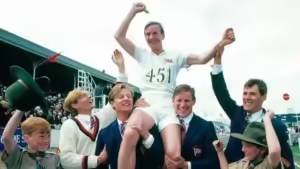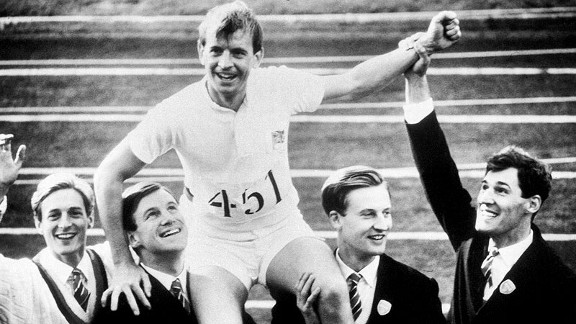Almost any of us remembers that scene of the opening: the wind-swept beach, foamy waves, and triumphant music accompanying runners’ feet patting on wet sand.

This marked the beginning of the 1981 Oscar-winning film “Chariots of Fire,” which introduced the British athletes undergoing training for the Olympic Games.
That Unforgettable Scene
The runners, T-shirts and shorts muddied with sand and sea, splash through shallow water toward St. Andrews, Scotland. No other scene perhaps has, quite like this one—a pure, cinematic moment—so crystallized the feel of running and the athletes’ drive.
Pure Athletics
While principal producer David Puttnam says this about the beauty of athletics, “You’re throwing something, you’re jumping over something or you’re running. It’s the quintessence of human effort.” This ease and effortlessness are the reasons as to why “Chariots of Fire” still charms and relates to people even after more than four decades.
The Real Story Behind the Movie
“Chariots of Fire” is based on the lives of sprinters Eric Liddell and Harold Abrahams, based on which it won four Oscars, including Best Picture. Their performances en route to their gold-medal success during the 1924 Paris Olympics are shown in the movie.
Eric Liddell
Eric Liddell of Scotland withdrew from the Olympic 100 meters because the heats were to be run on a Sunday. He more than made up for what he lost by entering and winning the 400 meters, an event that he had little experience in running. It is the emotional high point in the movie when Liddell says, “God made me for a purpose, but he also made me fast. And when I run, I feel his pleasure.”.
Legacy of Selflessness
Known for his selflessness, Liddell returned to China as a missionary teacher after the Olympics until his death in a Japanese internment camp. Allan Wells, a former Scottish sprinter, said of Liddell, “He’s a very special person and put himself out there big-time.”
Harold Abrahams
Contrasted to Liddell, the story of Harold Abrahams is different. His running career was tinged with the emotions of rising above antisemitism. In many ways through the movie, Ben Cross exposes he is a resolute man but who suffered from pre-race nerves.
Impact of the Movie
As reflected by Puttnam, “Chariots of Fire” has saved lives. He explains that many letters have been written to him by people who decided not to commit suicide because of the movie. It gave them hope and the will to live.
Historical Inaccuracies
While it is not an actual portrayal of the lives of Liddell and Abrahams, it captures their spirit. For instance, Liddell did not decide on the spur of the moment not to run the 100m; he had known long before the Games that he would never run this race. These are small cavils about artistic license taken by the film, and the overall flavor of it rings true to their heritage and its memory as athletes. Excerpt from “The Making of “Chariots of Fire” This film was no less a challenge to develop than training for the Olympics. The actors received training from Olympic coach Tom McNab, and in learning to hurdle for the film, Nigel Havers, who plays Lord Andrew Lindsey, broke his wrist but kept on filming without telling anybody.
For Valour
It is not inspired by running a House, but courage, devotion, commitment, and other values. It was so in the case of Liddell refusing to run on a Sunday, or Abrahams and his fight against the nervous feeling he had before the race. According to Puttnam, that is why the movie works: it is a question of victory, but the victory of the human spirit.
Conclusion
“Chariots of Fire” is arguably one of the greatest sport films ever made. What it has given in eternal values and emphasized in the joy, determination, and simplicity of running remains like a lighthouse in humanity’s soul. Its legacy is still inspiring and uplifting audiences around the world.





